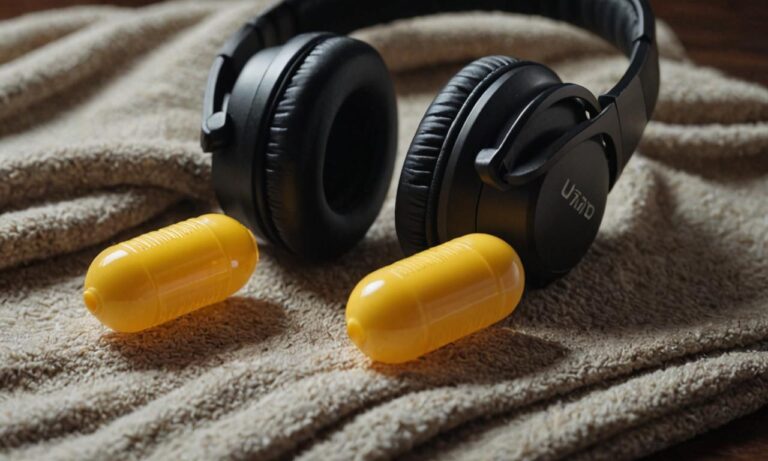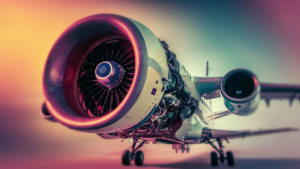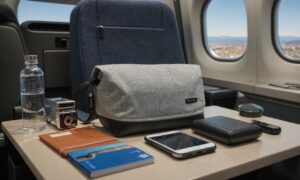For many travelers, the discomfort of ear pain during flights is an all-too-familiar experience. This sensation, commonly known as “airplane ear” or “ear barotrauma,” occurs due to changes in air pressure as the aircraft ascends or descends. Let’s delve into the mechanisms behind this phenomenon and explore ways to alleviate the discomfort.
Understanding Air Pressure Changes
During takeoff and landing, airplanes undergo significant changes in altitude, resulting in fluctuations in air pressure. As the aircraft climbs or descends, the pressure outside the ear changes more rapidly than the pressure inside the ear. This imbalance can lead to discomfort or pain, particularly if the Eustachian tube, which connects the middle ear to the back of the throat, is unable to equalize the pressure effectively.
Factors Contributing to Ear Pain
Several factors can exacerbate the discomfort experienced during flights:
- Blocked Eustachian Tubes: Conditions such as sinus congestion, allergies, or colds can obstruct the Eustachian tubes, making it challenging to equalize pressure.
- Rapid Pressure Changes: Rapid ascents or descents, common during short flights or turbulent weather conditions, can intensify ear discomfort.
- Prolonged Exposure: Extended flights increase the duration of exposure to pressure changes, potentially intensifying ear pain.
Alleviating Ear Discomfort
Fortunately, several strategies can help mitigate the discomfort associated with airplane ear:
- Swallowing: Chewing gum, swallowing, or yawning can activate the muscles that open the Eustachian tubes, facilitating pressure equalization.
- Yawning: Similarly, yawning helps open the Eustachian tubes and relieve pressure buildup.
- Pressure Equalization Techniques: Techniques such as the Valsalva maneuver, where one gently blows out while pinching the nostrils and keeping the mouth closed, can help equalize pressure.
- Decongestants: For individuals prone to sinus congestion, using over-the-counter decongestants before the flight may help alleviate symptoms.
- Earplugs: Specialized earplugs designed for air travel can regulate air pressure changes and reduce discomfort.
Seeking Medical Advice
While airplane ear is typically temporary and resolves once the aircraft reaches a stable altitude, severe or persistent ear pain may warrant medical attention. Individuals with preexisting ear conditions, such as eardrum perforations or recent ear surgeries, should consult a healthcare professional before flying.
In conclusion, understanding the factors contributing to ear pain during flights and adopting appropriate strategies can help travelers alleviate discomfort and enjoy a more pleasant flying experience.
Preventing Ear Pain Before Flying
Aside from strategies to alleviate discomfort during flights, there are also steps travelers can take before boarding to minimize the risk of ear pain:
- Stay Hydrated: Ensuring adequate hydration before and during the flight can help keep nasal passages moist, facilitating easier equalization of air pressure.
- Avoid Alcohol and Caffeine: Both alcohol and caffeine can contribute to dehydration, which may exacerbate sinus congestion and increase the likelihood of ear pain.
- Consider Ear Drops: Using specialized ear drops designed to reduce inflammation and promote Eustachian tube function may help prevent ear discomfort.
Frequently Asked Questions
| Question | Answer |
|---|---|
| Is airplane ear dangerous? | In most cases, airplane ear is not dangerous and resolves on its own. However, severe or persistent ear pain should be evaluated by a medical professional. |
| Can children experience airplane ear? | Yes, children are susceptible to airplane ear, particularly if they have underlying sinus issues or allergies. Parents should encourage swallowing, yawning, or sucking on a pacifier to help equalize pressure. |
| Are there any medications to prevent airplane ear? | Over-the-counter decongestants or nasal sprays may help reduce sinus congestion and promote easier equalization of air pressure. However, individuals should consult with a healthcare provider before using any medication. |
See also:






